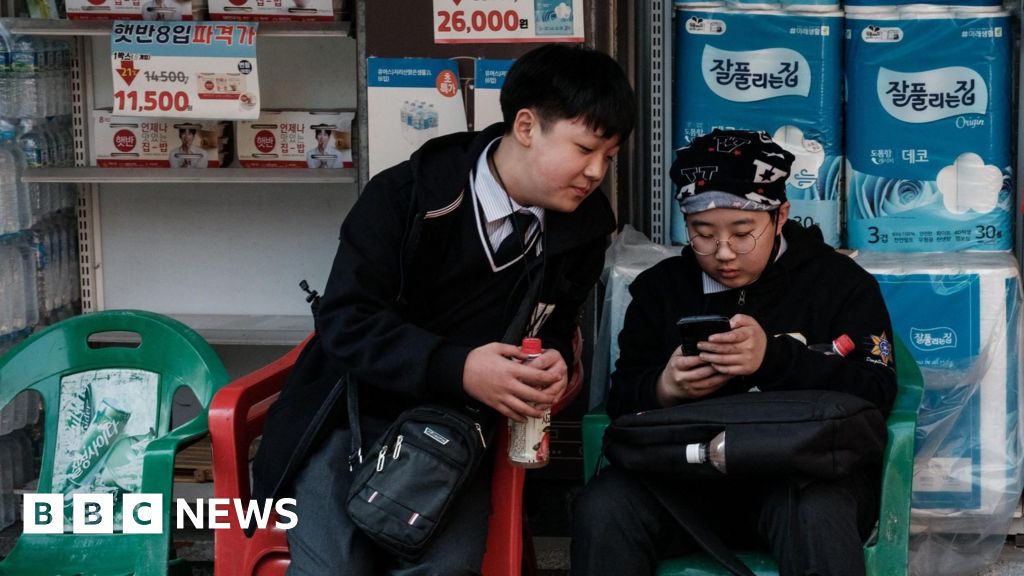South Korea has passed a bill banning the use of mobile phones and smart devices during class hours in schools - becoming the latest country to restrict phone use among children and teens.
The law, which comes into effect from the next school year in March 2026, is the result of a bi-partisan effort to curb smartphone addiction, as more research points to its harmful effects.
Lawmakers, parents, and teachers argue that smartphone use is affecting students' academic performance and takes away time they could have spent studying.
The ban has its skeptics, including students, who question how it would work, its wider implications, and whether it is addressing the root cause of addiction.
The bill passed convincingly on Wednesday afternoon, with 115 votes in favor out of 163 members present.
Most South Korean schools have already implemented some form of a smartphone ban. And they are not the first to do so. Some countries like Finland and France have banned phones on a smaller scale, while Italy, the Netherlands, and China have restricted phone use in all schools.
Ms. Choi, a mother of a 14-year-old, noted that children nowadays find it increasingly difficult to put down their smartphones. According to a 2024 government survey, nearly a quarter of South Korea's population admits to over-dependence on their phones, with the figure rising to 43% for teenagers.
While some parents welcome the ban to help their children focus better in the classroom, others express concern against the eradication of social interaction that phones facilitate.
The bill also allows exemptions for students with disabilities and permits phone use for educational purposes or emergencies. However, the divide among teachers remains evident, as two major teacher unions in the country differ on their stance regarding the law.
Ultimately, educators argue that rather than imposing bans, schools should teach students healthier phone usage.




















